When New York, Brooklyn and the various towns of Queens, Bronx and Staten Island became one city in 1898, it was a good day for the architects and builders. The newly-united mega-city needed new office space for each of its five new boroughs, and it needed a place to keep its hundreds of years of records, going back to Dutch New Amsterdam days.

And it was a bullish time, when city officials looked to a future as the World's City. Not to mention that the financial panic of the mid-1890s seemed over and no one yet saw the Panic of 1907 coming. And not to mention that there were now lots of Tammany Hall and other politicians who needed some good projects to get people jobs on, or to take a little "honest graft" from.
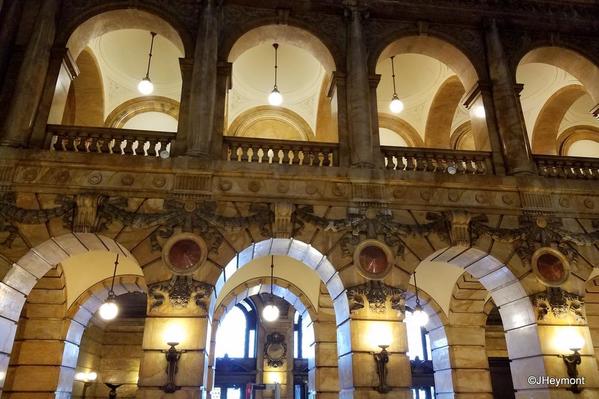
All cynicism aside, we New Yorkers got some good buildings from the era, including some beautiful schools and monuments—some of them famous, and some, like today's subject, hardly known even to New Yorkers.
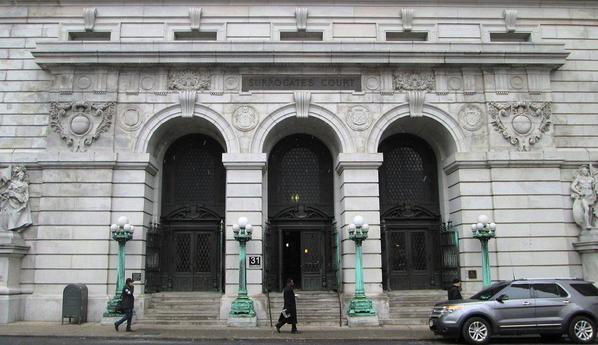
I'd walked past this "so-what" exterior any number of times without looking up to see the exuberant upper floors.
And I never even guessed what lay inside until my wife returned from a trip to the Municipal Archives with the interior pictures you see here.
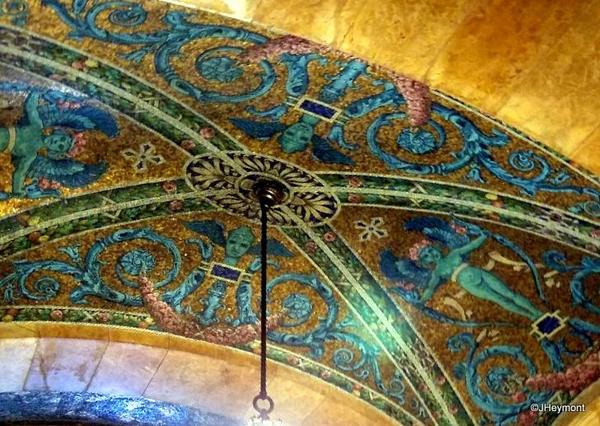
And what a shame! The Hall of Records, now called the Surrogate's Court, is a Beaux Art stunner that has starred in numerous commercials and quite a few films. It's landmarked inside and out by New York City, and its on the federal landmarks list as well.
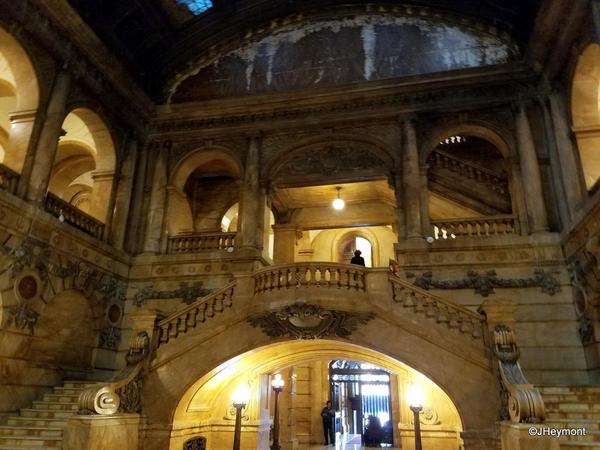
The building was started in 1899 and opened in 1907. The exterior is dressed with no less than 54 statues of prominent New Yorkers and allegorical figures, including a few Tammany mayors.
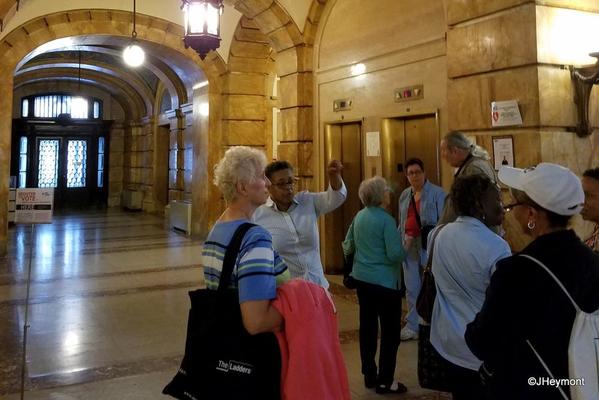
The architect was John R. Thomas, believed by some to be the designer of more public buildings in that era than any other architect. The central interior courtyard with the grand stairs was supposedly inspired by Paris's Opera Garnier.
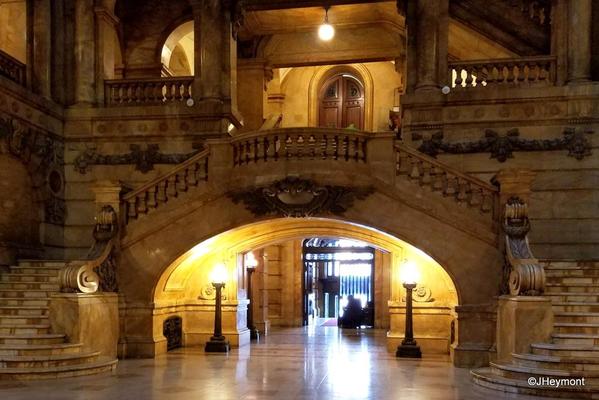 It's our good fortune, although perhaps due to neglect, that the building has suffered hardly any of the modernizations of its near neighbors. If you're in New York, stop by and have a look; it's just steps away from City Hall (1820s) and the Municipal Building (1914).
It's our good fortune, although perhaps due to neglect, that the building has suffered hardly any of the modernizations of its near neighbors. If you're in New York, stop by and have a look; it's just steps away from City Hall (1820s) and the Municipal Building (1914).
Exterior views above from Beyond My Ken and Elisa Rolle, both Wikimedia


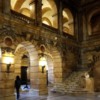



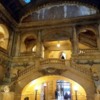

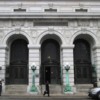
Comments (0)